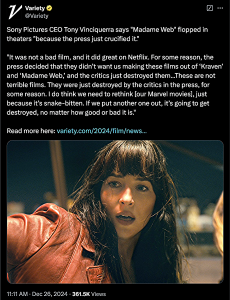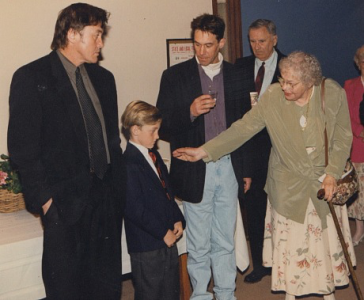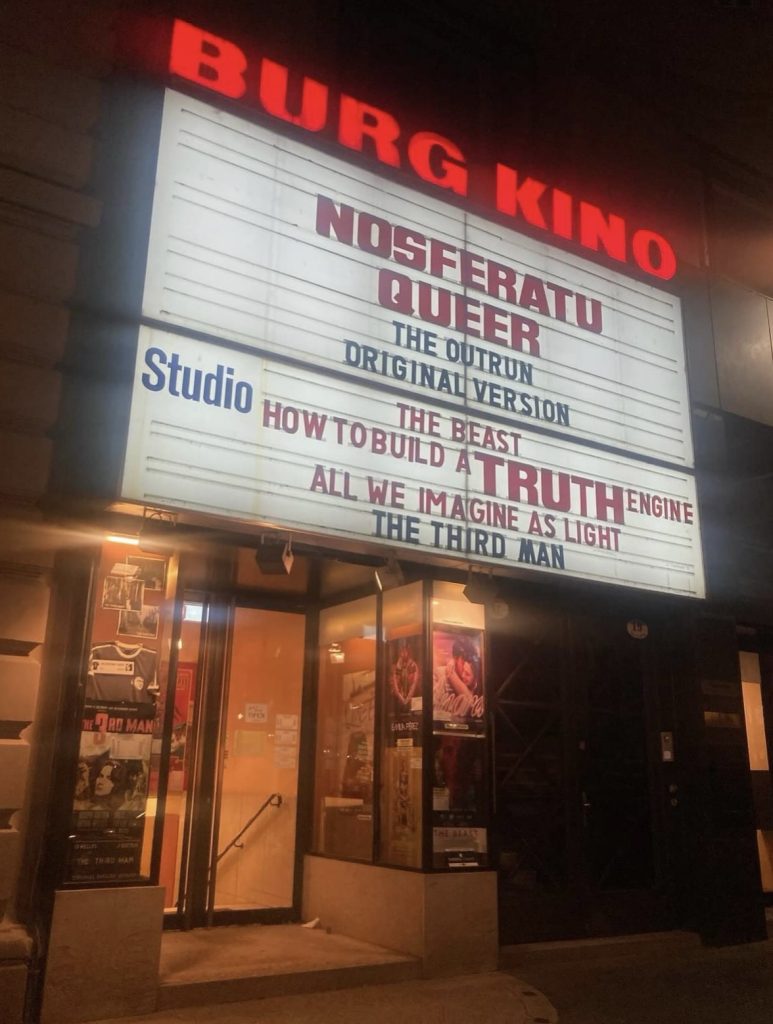….that have ever come out of Ethan Hawke’s mouth. Particularly the passage between 1:50 and 2:48, but the whole thing really. Posted four years ago.
Glimpse of “Psycho” Billboard Salesmanship
Posting a live, film-sourced GIF of the DeMille theatre’s electrified PSYCHO billboard (Seventh Avenue and 47th) in June 1960 is an HE milestone — never before have I seen this GIF, much less tried to share it. 63 and 1/2 years ago. A very big deal.
The I Don’t Care Girl (’53) was a biopic about Eva Tanguay, a vaudeville superstar who peaked from around 1900 to the early 1920s. 21-year-old Mitzi Gaynor wasn’t a good fit for a film with that title, as it suggested a woman with a provocational, sexually liberated, Isadora Duncan-like attitude.
As I noted in my 10.21.24 Gaynor obit, “Thespian skills aside, most popular actresses of the ‘40s and ‘50s activated or at least hinted at some form of inner heat…some kind of bedroom intrigue or fantasy. Whatever it was that Rita Hayworth or Lana Turner or Maureen O’Hara or Lizabeth Scott or Anna Magnani or Jean Simmons or Gloria Grahame or pre-Cleopatra Elizabeth Taylor or even Deborah Kerr had that indicated a vigorous or perhaps even a hungry-python approach to sex, Gaynor had almost none of.”
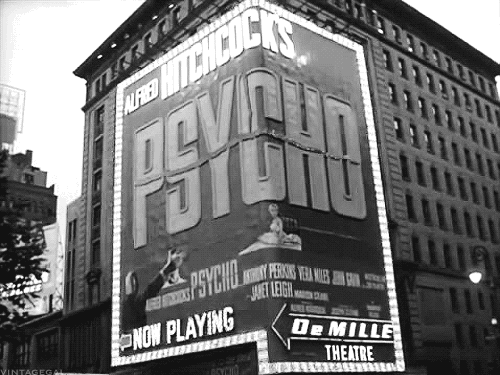
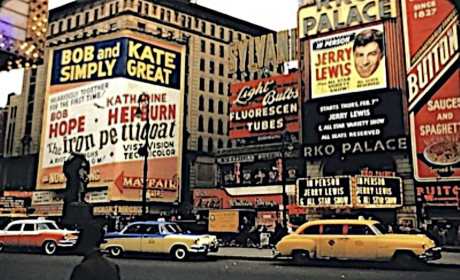
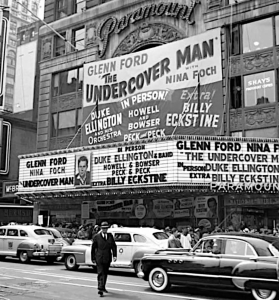

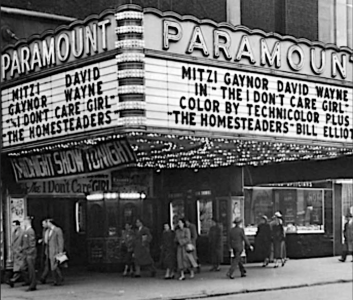
Soul Bruthah
Ollie Brenner hates the hoi polloi like I do, plus he hates Nosferatu (“terrible fucking movie”). My kind of cinema bro. 100% approval.
Ollie on the scent of Dayton cinemagoers at a certain Regal cinema: “There’s a certain smell that encapsulates them. A certain aroma, if you will, that follows them around. Kind if like,…I don’t know. Like musky, but also lilke a rusty coin kind of smell, Showering maybe a couple times a week. A certain smell that bombarded my nostrils when we entered the theatre.”
@olliebrenner Keeping it classy in the dirty dyt #dayton #daytonohio #ohio ♬ original sound – ollie brenner
Four-Month-Old “Nickel Boys” Riff
12:47 pm: RaMell Ross’s Nickel Boys is a truly fascinating and innovative arthouse experiment during the first 30 to 45 minutes, delivering nervy and daringly out-there chops with its avoidance of traditional boilerplate camera strategies, going for broke with a tilt-a-whirl visual scheme .
But the determination to mostly go with a vaguely Emmanuel Lubezski-ish strategy of having the camera or audience directly experience the lead protagonist’s POV wears down after a while, and what little narrative tension it has dissipates before long because Ross and Joslyn Barnes’ screenplay, based on Colson Whitehead’s 2019 novel, isn’t following a linear plot line, and the film basically goes on way too long (140 minutes).
Ferociously ambitious young directors make this mistake from time to time, over-indulging their whims and darlings, etc. This doesn’t exactly constitute a felony but the film, which tells a sad and brutal tale about a notoriously corrupt Florida reform school in the ‘60s, is definitely hurt by RaMell’s over-reach.
Nickel Boys deserves an A for ambition, and the performances are quite good (Aunjanue Ellis-Taylor is the big stand-out) but it really does tax your patience and gradually runs out of gas, and a few plot events feel a bit confusing.
Many Ticket-Buying Rubes Are Flunking “Babygirl”
The brilliant Babygirl has a middling 77% RT rating from critics, but it’s been handed an unmistakably failing grade — 54% — from Joe and Jane Popcorn, and particularly from women.
I’ve been swooning over Halina Reijn’s film since I first saw it two weeks ago, and these neghead responses have left me crestfallen. One of the absolute finest films of the year is a complete flop with too many women. A 54% grade is basically a thumbs down — it’s not much different than a 30% or 20% grade — fail! — people are holding their noses.
Study the RT auudience blurbs. Some dudes like it and some don’t, but almost all the women dislike or even hate it.




@blmxalimo my fault for seeing the words ‘delicious’ and ‘sexy’ in the trailer and immediately purchasing a ticket #acompleteunknown #timotheechalamet #nosferatu ♬ original sound – farhiya
Listen to this guy especially — the unpleasantness wasn’t the movie’s fault, but the audience’s.
@moviesaretherapy Babygirl movie review kinda #fyp #foryou #movies ♬ original sound – Kit Lazer
Final “Flower Moon” Verdict
An overlong, way-too-costly leviathan of a film that (a) nobody wants to re-watch, (b) will go down in history as the only Martin Scorsese movie that represented a total capitulation to woke identity politics (and in so doing jettisoned the legendary vitality of the Scorsese brand) and (c) provided a springboard for an unfortunate identity campaign for Best Actress that we all had to tolerate for months on end, despite the effort being doomed to fail on Oscar night because the performance was obviously supporting. What a drag all around.
Only now can the tragic embarrassment of Killers of the Flower Moon be fully comprehended.
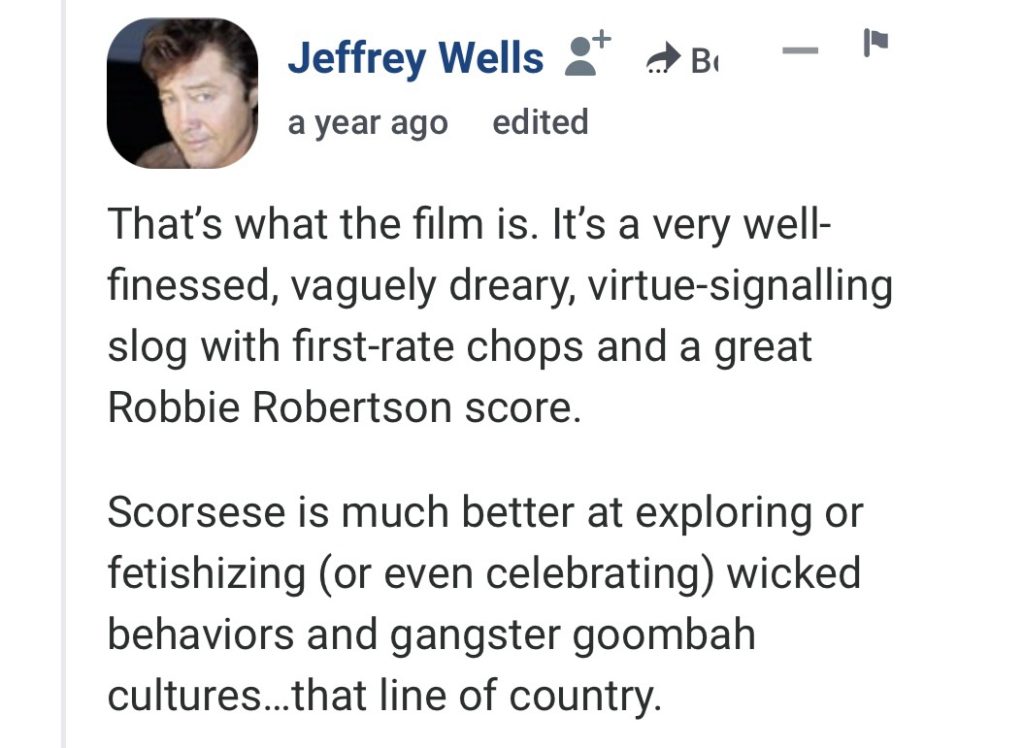
If only Marty and Leonardo DiCaprio hadn’t pussied out and had stayed with Eric Roth’s original take on David Grann’s 2017 novel…alas.


Chalamet-Dylan Album Covers
One-third of the way through A Complete Unknown there’s a brief shot of Timothee Chalamet flipping through vinyl albums inside Bleecker Bob’s, and we see glimpses of Dylan’s first album with Chalamet’s photo subbing for the Real McCoy.
We also glimpse one of Joan Baez’s early albums with Monica Barbaro on the cover.
Chalamet and Elle Fanning posed last year for a substitute version of the famous cover shot for The Freewheelin’ Bob Dylan. I’d like to see cover replica keepsakes of all the early to mid ‘60s Dylan albums, right on through to Highway 61 Revisited and Blonde on Blonde.
.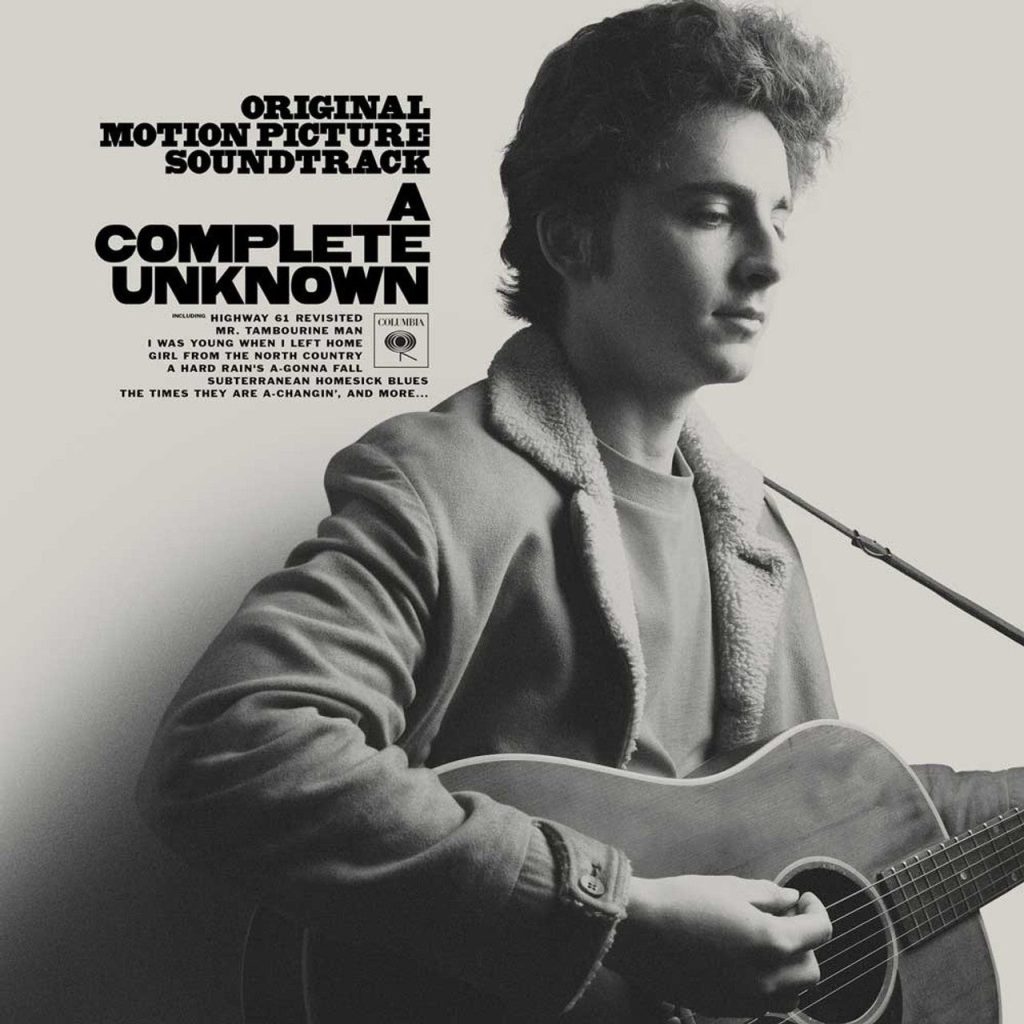
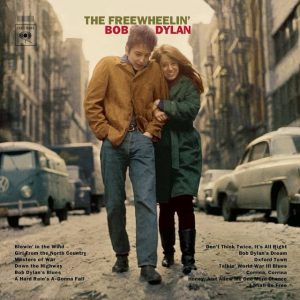

Obvious Alcohol Factor
How do you “fall off” a moving vehicle? Even if the vehicle is a motorcycle and you’re a rear passenger who’s had a few, it’s fairly hard to fall the fuck off.
You’d have to be so drunk that your arrogance has over-ruled basic survival instincts, and that’s pretty damn stinko.
Have the reports about the death of Hudson Joseph Meek mentioned booze? Have they stated whether or not Meek was on a friend’s motorcycle or riding on top of someone’s car or on the bed of a pickup truck? Of course not.
I have a slight insight into this careless tragedy as I once rode spread-eagled atop a Ford LTD station wagon in the dead of night. I was in my late teens and half-bombed, but held on to the chrome luggage rack for dear life. It wasn’t that physically hard but my full attention and concentration were not a subject for debate — they were fully required.
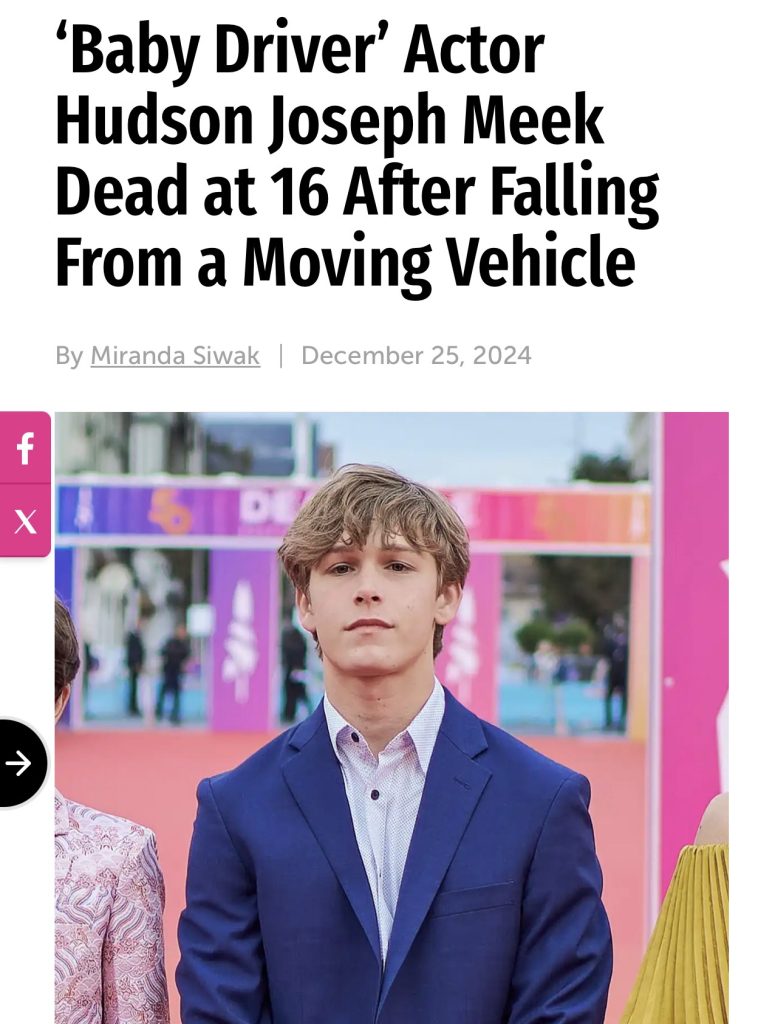
Posted on 4.15.15, starting with paragraph #11:

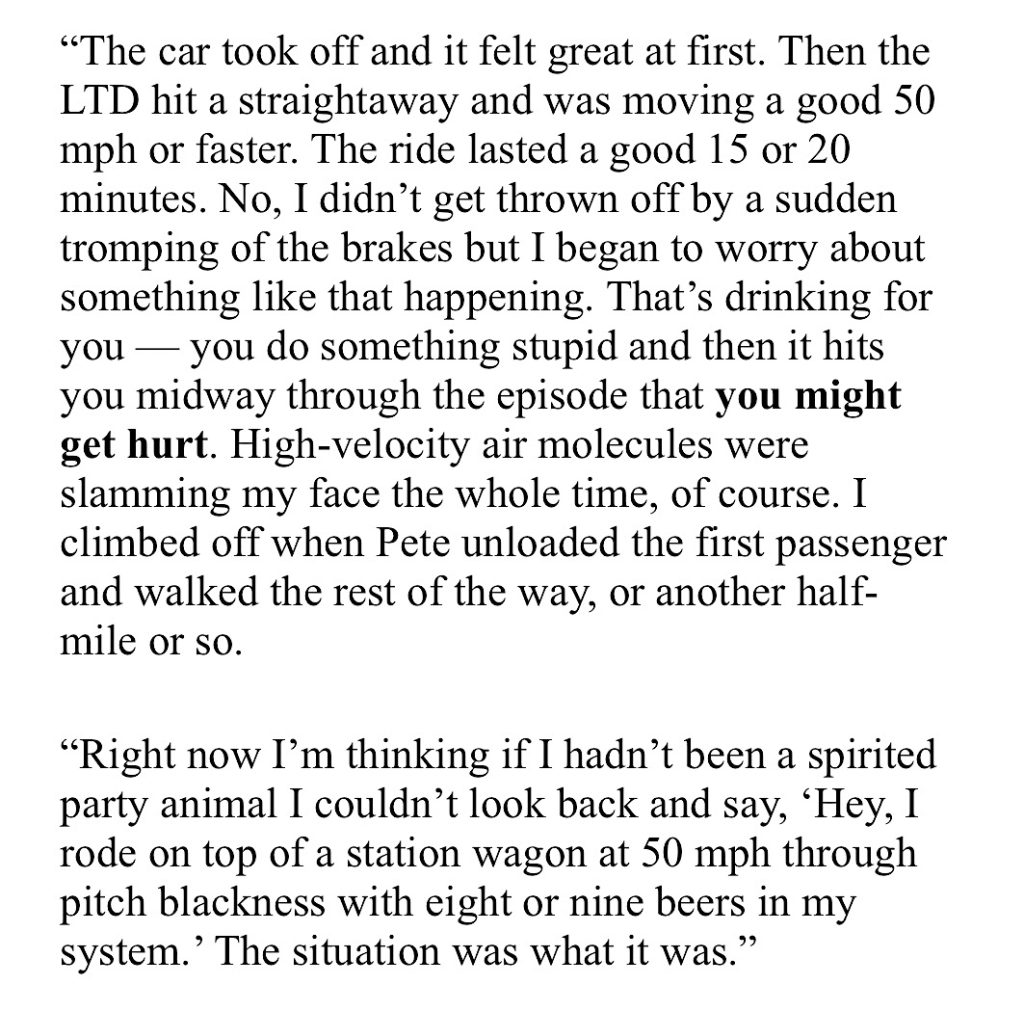
The Us magazine report about Meek’s death didn’t synch up. Last time I checked “falling off” a vehicle was different than being “ejected” from it:


Was There Anyone At All Who Liked “Madame Web”?
Remember that moment in Goodfellas when Joe Pesci shoves an ice pick into the back of the head of Chuck Low‘s “Morrie” Kessler, the hugely obnoxious wig guy who was part of the Lufthansa heist? And Morrie goes “ahrgggghhh“? That’s what happened to Madame Web on Rotten Tomatoes. Not to mention Metacritic.



